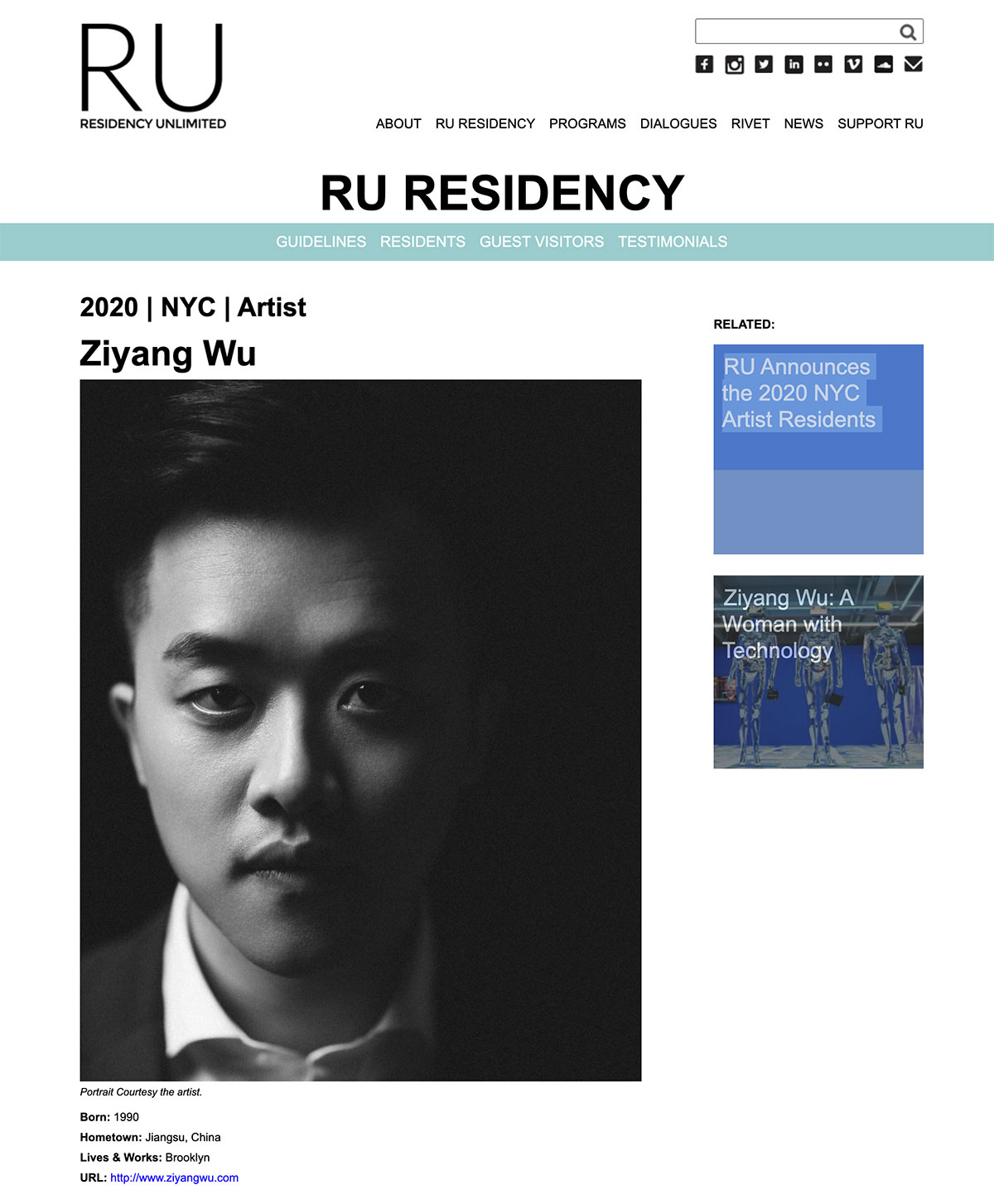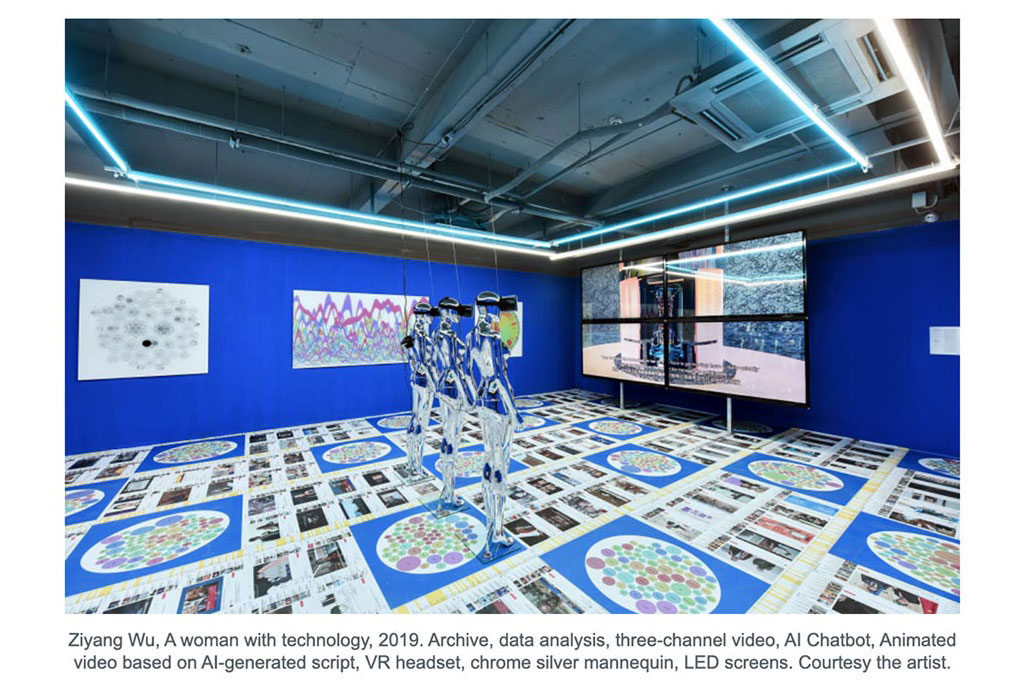RU News | Mar, 2020
RU Announces the 2020 NYC Artist Residents
Residency Unlimited (RU) is thrilled to announce the four artists participating in the 2020 NYC Artist Residency Program: Elizabeth Moran, Carlos Rosales-Silva, Christopher Udemezue, and Ziyang Wu. These NYC-based artists were selected based on the caliber of their work and the rigor of their engagement with lesser known historical narratives. Their respective practices take on historiography, knowledge making, socioeconomic structures, and the digitization of contemporary society, representing a range of diverse communities traditionally underrepresented in the arts. Scheduled for Apr 13 - Jul 12 with a culminating group exhibition the final week of June, the residency will be amended as necessary to adapt to changing circumstances.
Please join us in welcoming Elizabeth, Carlos, Christopher and Ziyang! RU is looking forward to working with the 2020 cohort of NYC artists, to learning from them and sharing their work with you.
https://www.residencyunlimited.org/ru-announces-the-2020-nyc-artist-residents/

Ziyang Wu's most recent body of work, examines how the virtual world ubiquitously alienates and reconstructs humanity in our highly globalized post-internet society. Utilizing augmented reality, 3D printing, motion capture performance, social practice, artificial intelligence application and interactive video installation, the artist addresses how data and algorithms work as invisible forces in our everyday lives.
As a Chinese artist living in the U.S., Wu's relationship with NYC has been largely impacted by his experience teaching at the School of Visual Arts and living in Chinatown and Bedford Stuyvesant, Brooklyn. His interaction with a variety of communities informs his practice in both an American and international context.
 About the Panelists:
Natasha Becker
About the Panelists:
Natasha Becker is an independent curator, writer, and a co-founder of Assembly Room, an art gallery and curatorial program on the Lower East Side that is dedicated to supporting women in the arts. An expert in contemporary African and African American art, she has curated a number of exhibitions in collaboration with artists, curators, collectors, galleries, museums, and foundations in Africa and the United States, including the inaugural exhibitions Perilous Bodies and Radical Love at the Ford Foundation Center for Social Justice (2019). Natasha has contributed writing to The Brooklyn Rail and is a Curator-in-Residence at Faction Art Projects in Harlem, New York.
Rachel Gugelberger is a cultural producer with a focus on place-based practices around social, cultural, and civic issues. Projects include (after)care (2019), a site-specific exhibition in a former emergency waiting room at Kings County Hospital Center in East Flatbush, Brooklyn; Jameco Exchange (2016), a site-responsive exhibition and socially engaged education platform in a vacant storefront in Jamaica, Queens; and Bring in the Reality (2015), an exhibition at the intersection of activism and storytelling at the Nathan Cummings Foundation, NY. Independent curatorial projects have focused on the intersection of information, data, and art, including: Once Upon a Time There was the End, the Center for Book Arts, New York, NY and Data Deluge, Ballroom Marfa, TX. She has served as curator at No Longer Empty (NLE) and director of the NLE Curatorial Lab program, as co-director of Sara Meltzer Gallery, and as a curator at Exit Art.
Ilk Yasha is an arts administrator, multidisciplinary facilitator, and educator at The Studio Museum in Harlem. He has worked with arts and cultural organizations such as Pioneer Works, Lower Manhattan Cultural Council, Museum of the City of New York, and Brooklyn Historical Society. He currently manages the Studio Museum Institute, a suite of programs that aggregates the Museum’s commitment to train and mentor art world leaders from historically underrepresented backgrounds including scholars, curators, and educators. He has a PhD in Middle Eastern and Mediterranean Studies, an MA in Policy Studies & Political Science, and a BS in Biology.
This program is supported, in part, by public funds from the New York City Department of Cultural Affairs in partnership with the city council and generous support from individual donors.

